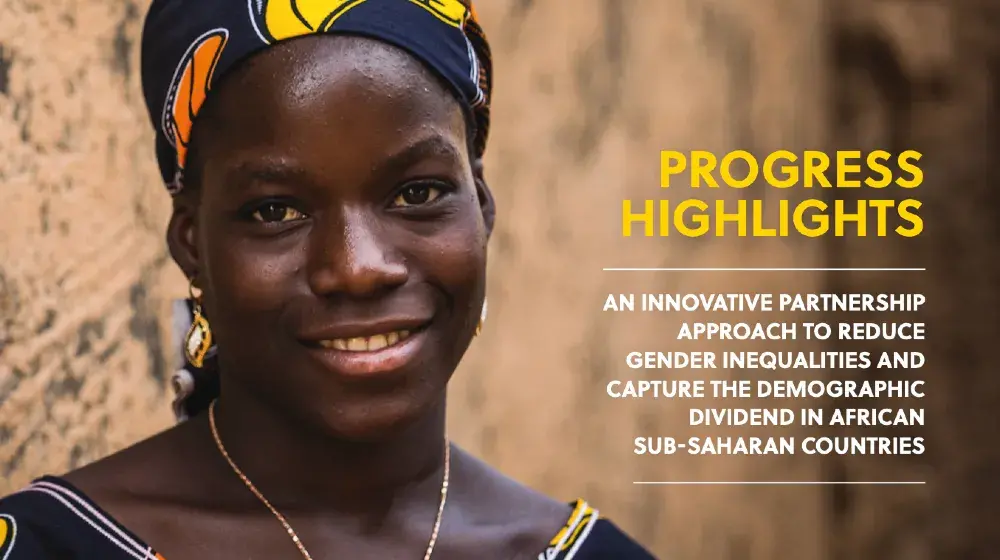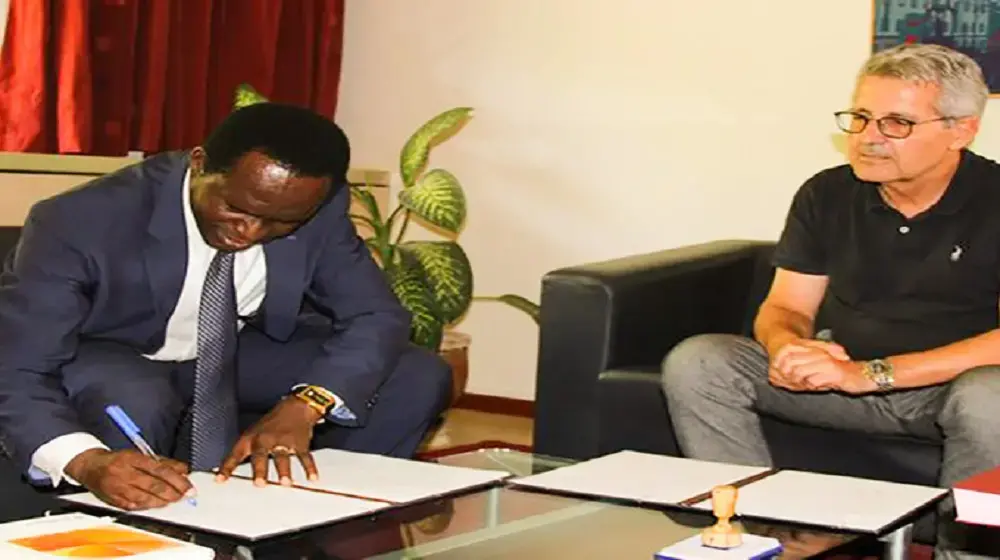Abuja, Nigeria - On 30 July 2014, Dr. Babatunde Osotimehin met with President Goodluck Jonathan as part of his high level advocacy mission. The two dignitaries discussed UNFPA humanitarian response through National Emergency Management Agency (NEMA) for girls and women, partnership with the State and Federal Ministries of Health to improve maternal health and the recent case of Ebola virus.
In his statement, Dr. Osotimehin assured the President that the UNFPA’s assistance to the Government of Nigeria will be sustained. He stated it is becoming more visible now education of the girl Child will change the quality of life of the communities overall.
UNFPA therefore wants to work with Government of Nigeria in area of girl child education to mitigate early marriage and enforced marriage which bridges the rights of girls. He informed that UNFPA’s strategy is to partner with religious leaders and traditional leaders, and to sensitize on the major causes of maternal mortality including the linkage between girl-child education, child survival and quality of life. He further informed that UNFPA is advocating for girls and boys to stay in school and acquire education to enable them contribute their quota to the society and have access to credit and job.
“Girl-child education is the most important in facilitating any progress towards harnessing Demographic Dividend in the country”, Dr Osotimehin said.
In a statement at a National Seminar on Demographic Dividend in Abuja, Dr Osotimehin said adequate budgetary allocation and utilisation by government on the education and health sectors will assist in helping Nigeria to achieve its goal of socio-economic transformation agenda in its vision 20:2020. The vision 20:2020 policy was articulated to make Nigeria one of the twenty largest economies in the world by the year 2020.
During his courtesy call to the Chairman, Subsidy Re-Investment and Empowerment Program, (SURE-P), Mr. Martin-Luther Agwai in Abuja, Dr. Osotimehin said Nigeria needs to invest more on maternal mortality to save lives of women who die in the course of child birth.
“Issues of maternal mortality have not improved in this country for 40 years because we have not been consistent in investment that should get to women. The commitment that government made at the Family Planning Conference in London in 2012 was to actually add to the commitment they had already made on issues of commodities to save lives of women. But what we find is that UNFPA has not received the resources to provide the commodities to save lives of women”, he said adding, “It is impossible today for us as a country to allow women to continue to die while giving life.”
Regarding population data, UNFPA and the National Population Commission (NPopC) have agreed to promote census and survey for up-to-date population information and dynamics especially as it relates to women and girls for planning, development and investment in Nigeria. The Executive Director of UNFPA stressed the need for timely census and the demographic and health surveys as well as the significance of data collection on population of women and girls in Nigeria for planning for their health services, education and to protect their rights. He urged government to finalize the Census Strategic Plan and make proclamation on the census to enable UNFPA to take action.
Family planning
Human rights
UNFPA Reaffirms Support to Population Program in Nigeria
News
UNFPA Reaffirms Support to Population Program in Nigeria
06 August 2014





